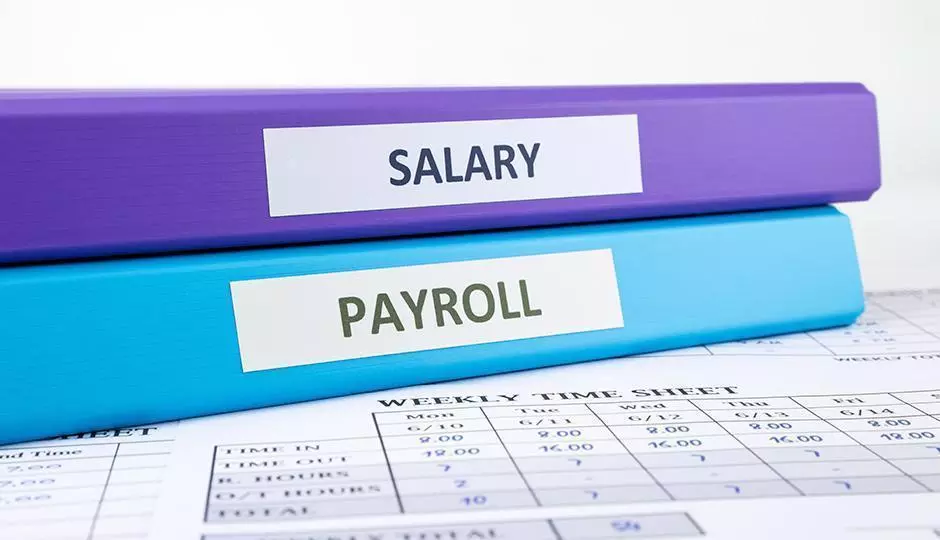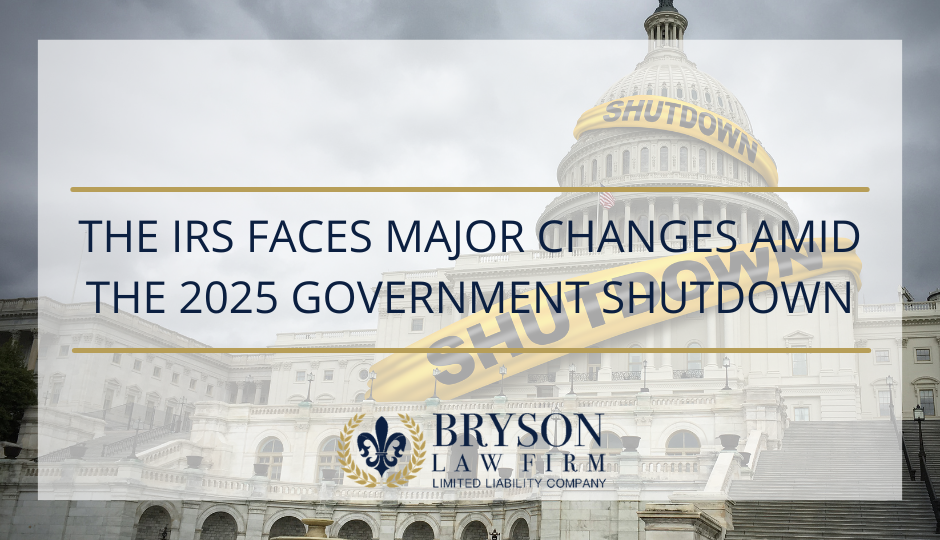
Failure to pay your employees’ payroll taxes is very serious. Employers often go to jail for not paying these taxes. That’s why we say, a tax problem is a legal problem, so you should seek an experienced tax attorney to review your case. If you’re behind on your payroll taxes for any reason, it’s time to call Bryson Law Firm, L.L.C. for a free initial consultation before your situation gets any worse.
Types of Payroll Taxes and IRS Forms
Payroll taxes are the funds you pay to the IRS as part of an employee’s salary. Every employer is required to withhold these taxes, which include income taxes, Social Security, and Medicare. Companies are also required to provide matching funds for an employee’s Social Security and Medicare, and also pay toward workers’ compensation and unemployment benefits. It’s also the employer’s responsibility to file payroll tax forms, such as the Employer’s Quarterly Federal Tax Return and the Employer’s Annual Federal Unemployment, or FUTA Tax Return.
Failing to timely file these forms and pay the taxes is like placing a big bull’s-eye on your company. The IRS places a higher priority on investigating payroll tax issues than income taxes. That’s because these taxes have far-reaching implications for employees. It may mean an employee won’t qualify for Social Security or Medicare in the future. In fact, the IRS considers not paying these taxes as stealing from your employees.
You also need to pay particular attention to the IRS guidelines for classifying someone as an independent contractor. Wrongly interpreting a person’s classification can affect whether you should be paying their FICA. Generally, the IRS considers an independent contractor as a person who completes the work under their own auspices, and not directly managed by the employer.
Who is Responsible for Payroll Taxes?
The IRS has a pretty broad definition of the responsible parties for depositing payroll taxes. Business owners and people with check-signing authority can be held liable. Even if the business owner delegates the authority of paying the taxes to another person, such as an accountant, the owner can still be held accountable for the missing payroll taxes.
Penalties for Failing to File Payroll Taxes
The consequences for neglecting to pay your company’s payroll taxes can be severe. The IRS can impose a fine of up to 15 percent just for failure to file your payroll taxes. But the big penalty the IRS can impose is called the Trust Fund Recovery Penalty, or TFRP. Responsible parties can be held accountable for 100 percent of the missing taxes through the TFRP. Plus, the IRS will continue to add interest starting with the due date. Some business owners have had to pay millions of dollars in back taxes and interest. And that tax bill doesn’t go away, even if you file for bankruptcy.
There are even harsher penalties if the IRS can prove there was a willful failure to pay the payroll taxes, such as using the funds for personal gain. If proven, the person could be convicted of a felony, bringing with it a fine of up to $10,000 and/or up to five years in jail.
What Can You Do About Back Payroll Taxes?
As you can tell, getting behind on payroll taxes is just not a good idea. It can have a devastating impact on your company, even put you out of business. Whether you're in Louisiana, Texas, Alabama, or another state, there are a number of avenues we can pursue to reach a payroll tax resolution with the IRS over your back payroll taxes. Some of our options include negotiating an Offer in Compromise or an Installment Agreement. We’ve also had success with settling payroll tax cases for our clients through large Penalty Abatements.
Failing to pay your payroll taxes is one of the worst things you can do for the viability of your company. You can be held personally responsible for the whole tax bill. If you’re delinquent on your payroll taxes, you need to find a tax attorney to help you deal with the complex nature of these taxes. Contact Bryson Law Firm, L.L.C. for a free initial consultation with one of our experienced tax attorneys who can help guide you through the payroll tax maze.























